1) Pharrel Williams is going to make the world sing
Banish your memories of the slightly cringy Live Earth concerts held seven years ago at Wembley stadium and around the world. This time, “instead of just having people perform, we literally are going to have humanity harmonise all at once,” Williams promised on Wednesday, standing alongside Al Gore. The sequel, intended to galvanise action on climate change, lands on 18 June, with the 100+ acts TBC.
2) The Pope is fed up with us slapping nature down
Last week, Pope Francis gave his clearest comments yet on why the world’s 1.2 billion Catholics should care about climate change. “I don’t know if it is all (man’s fault) but the majority is, for the most part, it is man who continuously slaps down nature,” he said en route to Manila. Prepared remarks on climate planned for the weekend didn’t make waves, but there’s no doubt his encyclical on the environment – whether or not it explicitly mentions global warming – will do when it lands in June.
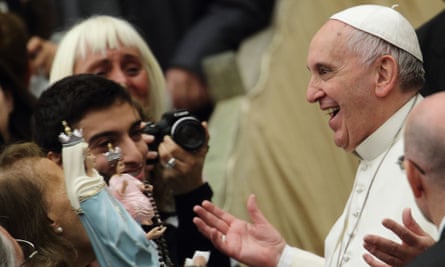
3) Barack Obama is flexing his muscles with other countries
“I am determined to make sure American leadership drives international action,” the president said on Tuesday in his State of the Union address. He’s already done that by signing what many called a ‘historic’ carbon-cutting deal with China last November. Next on the list is India, and while expectations are much more modest than they were with China, any movement he generates in the world’s third biggest carbon emitter will help Paris.
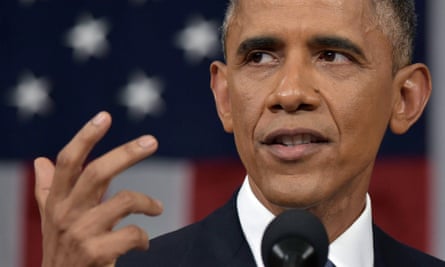
4) The Euro diplomats are coming!
Behind the scenes in the run-up to Paris, 90,000 European diplomats will be lobbying countries around the world to agree an ambitious climate deal. “The EU has enormous soft power and we must use that to push for an ambitious agenda in Paris,” says Denmark’s foreign minister. The EU was an important broker during the fraught 2011 talks in Durban, South Africa. It could well repeat that role in the run-up to Paris.
5) The people are marching
More than 400,000 people took to the streets of New York last September, according to march organisers, to ask leaders to stop talking and start taking action on climate change. Hundreds of thousands more did the same in cities from London to Melbourne. Further “people pressure” on the streets this year would reinforce the cards of politicians, who have talked before of the need for politicians to be “pushed” if they’re going to take bold action at the UN climate negotiations.
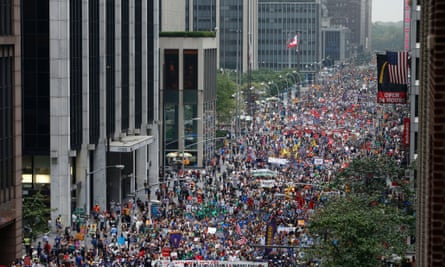
6) Solar and wind are flying
It won’t directly influence Paris, but a backdrop of surging investment in renewable energy is useful for negotiators and campaigners to be able to point to. Global investment in clean sources of energy jumped 16% in 2014, with solar accounting for over half for the first time. Low oil prices might, of course, paint a rather gloomier short-term picture for renewables in 2014.
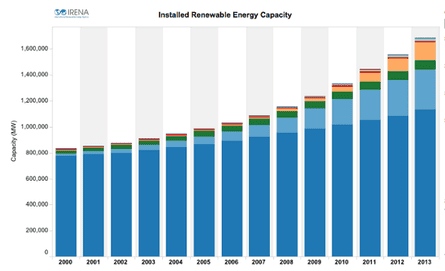
7) The DiCaprio effect
Never underestimate the reach of Leo. The Hollywood A-lister generated more column inches than all the world leaders put together at a New York climate summit last year. “As an actor I pretend for a living. I play fictitious characters often solving fictitious problems. I believe humankind has looked at climate change in that same way: as if it were a fiction, happening to someone else’s planet, as if pretending that climate change wasn’t real would somehow make it go away,” he told the UN meeting. As the UN’s Messenger of Peace, with a focus on climate change, we can expect to hear much more from him ahead of Paris – and Ben Affleck, Bono, Sting and other celebs.
8) Despite its critics, the UN process did agree a deal in Lima
Although it left a lot of the hard work to be done in Paris and was relatively modest, last year’s Lima climate summit did reach a deal. By the end of March, countries will have to show their hands in terms of what greenhouse gas cuts they’re planning, even if the Lima text doesn’t oblige them to go into details about baseline years and annual targets as some countries had asked for. “It was contentious [the Lima summit] along the way but it fundamentally accomplished what we wanted it to,” said the US’s lead negotiator – though not everyone would agree with that.
9) It’s top of Ban’s list
“Ours is the first generation that can end poverty, and the last that can take steps to avoid the worst impacts of climate change,” wrote Ban Ki-moon in the Guardian recently. The UN secretary general has made the climate talks one of his top priorities for years – and 2015 will be no exception.
10) France is hosting, not Denmark
France brings far more diplomatic firepower to the talks than Denmark, which took much of the blame for the weak accord agreed at 2009 in Copenhagen. During the Copenhagen summit, the Danish climate and energy minister resigned and was replaced by the Danish premier. French president François Hollande is on the record as saying he wants Paris to achieve “a historic climate agreement”, and has tasked his foreign minister, Laurent Fabius, with the presidency of the Paris summit. Along with Germany, France was one of the first countries to commit big cash to a climate fund to help developing countries.
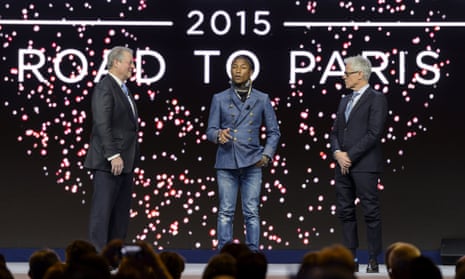
Comments (…)
Sign in or create your Guardian account to join the discussion